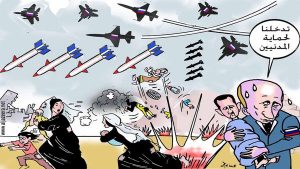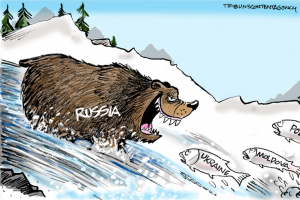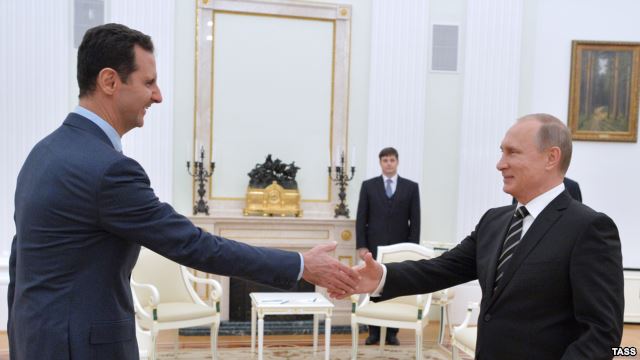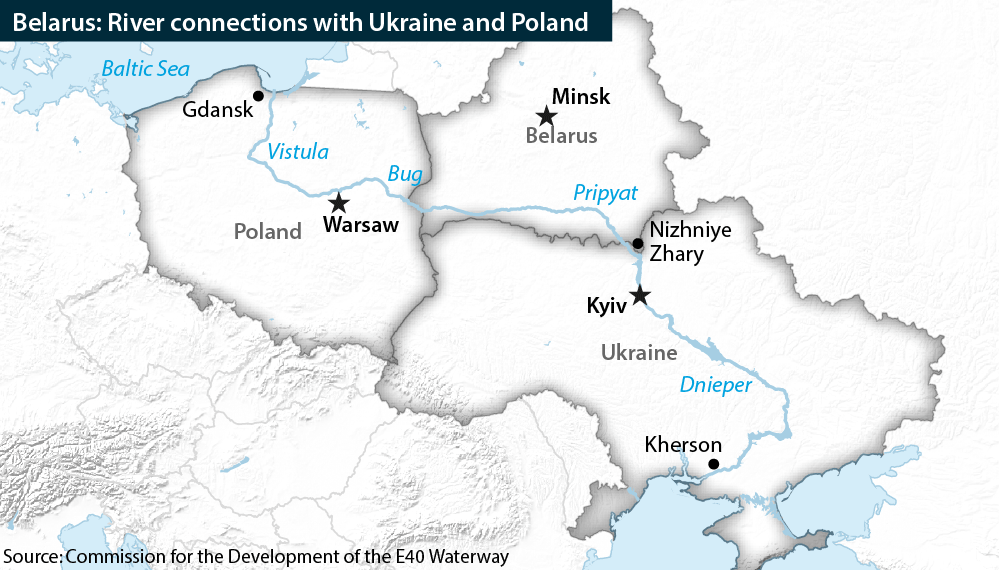Vladimir Putin’ decision to withdraw troops from Syria took many by surprise. However, at the end of November 2015, Arseniy Sivitskiy, Director of the Minsk Centre for Strategic and Foreign Policy Studies informed us about such a possibility.
“Today, it’s obvious that Russia is pressuring Assad to initiate a transition period, hold new presidential elections and launch a constitutional reform process ... As soon as Moscow is able to swap its influence on Assad for economic and military-political advantages from other regional players, the Kremlin will leave Syria and turn its military forces towards destabilizing other countries.”
We asked Arseniy Sivitskiy to comment on the current situation and the Kremlin’s possible further steps.
“The withdrawal of Russian troops from Syria illustrates that the Kremlin has achieved its goals in the Syrian crisis. Thanks to its military ground and air operations, Moscow has become a major player in the Syrian crisis, a fact that can no longer be ignored in the West, the Middle East or Syria. Thus, the Kremlin has been able to improve its involvement in military-political processes, both in Syria and in the entire Middle East.”
says the expert.

A similar view is shared by Yuriy Tsarik, Chairman of the Supervisory Board of the Centre for Strategic and Foreign Policy Studies.
“The withdrawal of Russian troops from Syria was predictable. Moscow didn’t want to stay there too long. Moreover, the Kremlin’s goal was neither to fight against the Islamic state nor to ensure the victory of Syrian President Bashar al-Assad. The Kremlin aimed at achieving several strategic effects, such as increasing conflict dynamics in the region before the “big war” between Sunni countries and Shiite Iran, participating in the development of oil and gas deposits in the Eastern Mediterranean and forming a strategic partnership with Saudi Arabia and Israel.”
Both Belarusian experts point out that Russia’s Syrian campaign was also an attempt to emerge from international isolation and restore the country’s prestige as a global power, which must hence be taken into account, especially in the West.
“This really happened when the US was forced to sit beside Russia and negotiate a ceasefire in Syria. In this sense, Russia chose the optimal moment to trade on its influence on Bashar al-Assad, who was completely dependent on Moscow for economic and political rewards, with other players involved in the Syrian crisis.” says Arseniy Sivitskiy.
Both analysts remind us that, in the beginning, the Kremlin had tried to implement this scheme with the West, trying to negotiate the normalization of relations, sanctions and concessions on the Ukrainian crisis in exchange for exerting pressure on Bashar al-Assad’s regime, and initiating better cooperation with the anti-terrorist coalition under the auspices of the United States. However, both the US and the EU made it clear that there would be no swapping of favours with regard to Syria and Ukraine, despite blatant attempts by Moscow to undermine Euro-Atlantic unity on the issue of sanctions.
However, both experts agree that if the West is not ready to make a deal with Russia, it does not mean that other countries involved in the Syrian war are not willing to do so.
“We’re talking primarily about Saudi Arabia and other Middle Eastern countries, for which the Syrian crisis is the main issue on their foreign policy agenda. A deal with Saudi Arabia involves swapping the stabilization of global oil prices for Assad’s departure. Thus, Moscow has to minimize its military action and put pressure on Bashar al-Assad in order to force him to the negotiating table and initiate a transitional political process, but without his participation. According to a number of Middle Eastern and Western European sources, Assad’s “sudden death” may be orchestrated by the former chief of the GRU, Igor Sergun, who was engaged in Syria in establishing a list of Syrian generals who would take their place on a transitional national council that would replace Bashar al-Assad in the next few months.” says Sivitskiy.
Sivitskiy also notes that all of the selected candidates have a very negative attitude to Iran’s influence on Syria and advocate for strategic cooperation with Saudi Arabia.
Of course, Assad himself was not pleased with such a prospect. In addition, it should be noted that Damascus has requested more and more military support from Iran, for whom Assad’s departure would mean the loss of geopolitical influence in Syria and the risk of undermining the position of the entire region.
“In this respect, Moscow selected the ideal time… when Tehran is busy with post-election domestic affairs.”
says Savitskiy.
“For the Middle East, Moscow’s withdrawal means that everything is ready for a Sunni-Shiite confrontation. Tehran was counting on a more loyal attitude from Moscow; Iran is losing ground in Syria and Lebanon and is forced to prepare for the worst case scenario. This has created grounds for strengthening the “hawks”, who will be betting on the Shiite underground to destabilize the rear of the Sunni monarchies in the Persian Gulf, and accelerating the implementation of their own missile program to ensure their country’s defense. Given that the current balance of power is not in favour of Tehran and that the Sunni coalition has taken the offensive, it’s quite possible that Iran will be forced to ignore certain provisions of their nuclear program. However, I doubt whether it will come to an irrevocable breakdown.” continues Yuriy Tsarik.
Both experts believe that the withdrawal of Russian troops from Syria means that the Kremlin will reorient its military and political pressure onto other countries, primarily to Eastern Europe (Belarus, Ukraine and Moldova).

“For the so-called post-Soviet space, the withdrawal of the Russian army marks the beginning of a period of rapid strengthening of Russia’s military and political pressure on “small” countries. Ukraine, Belarus, Moldova, Armenia and Tajikistan are at risk. Given the fact that Russia cannot afford to openly violate international law and undergo stronger anti-Russian sanctions, we can assume that the next conflict with Russian participation will either be less bloody or will assume a scenario whereby the Russian troops will be invited by a particular country to take part in armed hostilities (for example, within the framework of the Collective Security Treaty Organization). The most likely “victims” of Russian geostrategy are Belarus, Armenia and Tajikistan.” suggests Tsarik.

Both analysts believe that, due to Russian-Chinese competition in Central Asia, Tajikistan, as well as Central Asia as a whole, will eventually be the scene of another large-scale operation by special Russian troops.
“Relying on its “special relationship” with Pakistan and the influence of Saudi Arabia and Qatar in the region, Moscow will try to use the Islamist underground to undermine China’s position in Central Asia and destroy Chinese assets in the region. The Kremlin hopes that by forcing China to use its National Liberation Army in the region, it could complicate US-China relations and escalate tension on the East China Sea. However, it will not be easy for Moscow to win such a complex calculated game.” says Tsarik.





